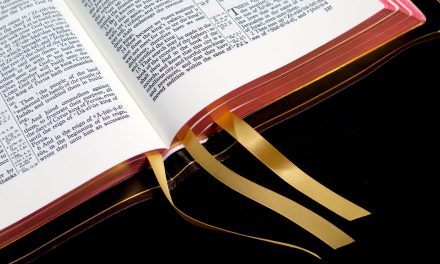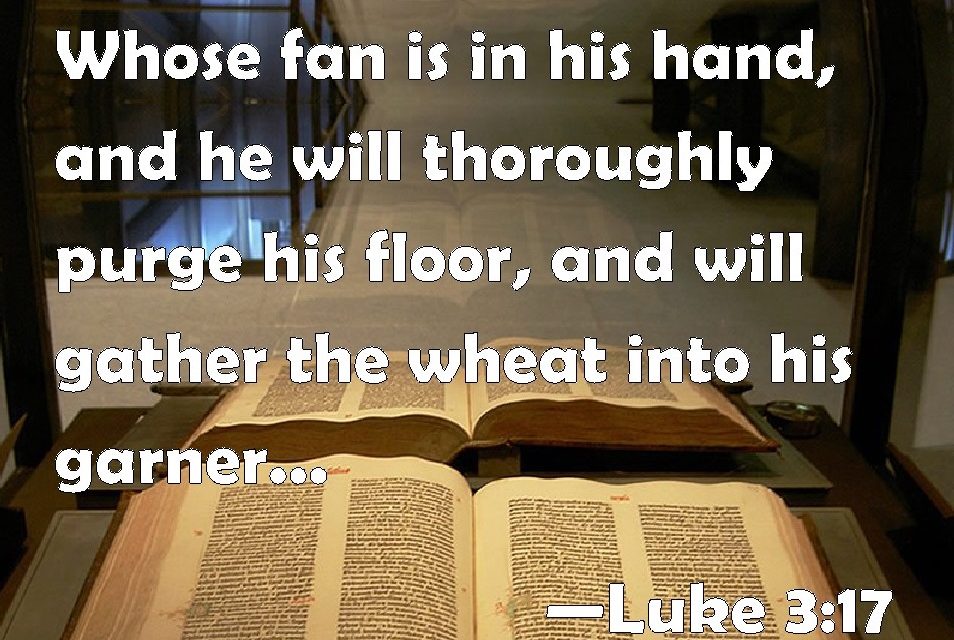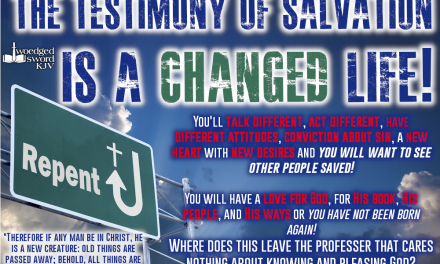Luke 3 John The Baptist
KJV Luke 3:1 Now in the fifteenth year of the reign of Tiberius Caesar, Pontius Pilate being governor of Judaea, and Herod being tetrarch of Galilee, and his brother Philip tetrarch of Ituraea and of the region of Trachonitis, and Lysanias the tetrarch of Abilene,
2 Annas and Caiaphas being the high priests, the word of God came unto John the son of Zacharias in the wilderness.
- Tiberius Caesar reigned as Roman emperor from 14AD to 37AD. So, his fifteenth year would have been 29AD. So we see God’s word, or command, coming to John the Baptist in 29AD.
- Rome ruled Judaea with an iron fist. Pilate was governor and hated the Jews. The Herods ruled much of the regions round about. They were not even Jews, but Edomites as was their father Herod the Great.
- The high priests in Jerusalem were appointed by the Roman government and so were beholden to Rome. They were not concerned about the things of God, nor the people of God, but about their own privilege, prestige, and power. They were unprincipled men, both Annas and then later Caiaphas.
- The prominent streams of religion among the Jews were Pharisaism and Sadducceeism. There was also a “separatist sect” known as the Essenes history says, that wore white robes and dwelt in the wilderness. But John was none of these. He was not an Essene, for he wore garments of camel skin and leather girdle. Neither was he a Pharisee. For he did not hold to the traditions which the Pharisees were known for. Neither was he a Sadduccee for he rejected their rejection of the supernatural. He believed in the resurrection, He believed in miracles, He believed that angels existed and were God’s ministers. For that is what the Bible proclaimed, and John was full of the Holy Ghost from before his birth. The Holy Spirit will not fill a person that does not believe in the words, commands and promises of the Bible.
- John was given birth by and raised by God-fearing parents. His father Zacharias was a priest, but not a hypocritical Pharisee or doubting Sadduccee. As we read in Luke 1:6 he and his wife Elizabeth were “both righteous before God, walking in all the commandments and ordinances blameless.” They surely told John as he was growing up all about how the Lord had miraculously brought about the opening of Elizabeth’s womb to conceive John. Also, they would have told John of how Gabriel appeared to Zacharias in the temple and announced John’s birth and that he would prepare the way of the Lord, the Messiah of Israel. Elizabeth would have told him how he had leaped in her womb when he heard the voice of Mary, the mother of the Lord Jesus Christ, the Messiah.
- Also, Zacharias would have obeyed Deut. 6:1-7. He would have told John of the history of the Lord’s relationship with the nation of Israel, of His great and wonderful promises, of His great righteousness and holiness, and His great faithfulness, and His abundant mercy and grace. John the Baptist was raised in a good, God fearing, God loving home. And it showed when he came forth to preach and announce the coming of Messiah to the nation.
- Though John was now about thirty years old, and of age to begin the duties of a priest to which he was privileged, he instead had chosen to spend his time alone with the Lord in the un-civilized wilderness areas of Judah. Here it was in the wilderness that John would have pondered the word of God, and the words of the prophecy that his father Zacharias had uttered in Luke 1:76-80 “And thou, child, shalt be called the prophet of the Highest: for thou shalt go before the face of the Lord to prepare his ways; 77 To give knowledge of salvation unto his people by the remission of their sins, 78 Through the tender mercy of our God; whereby the dayspring from on high hath visited us, 79 To give light to them that sit in darkness and in the shadow of death, to guide our feet into the way of peace. 80 And the child grew, and waxed strong in spirit, and was in the deserts till the day of his shewing unto Israel.”
3 And he came into all the country about Jordan, preaching the baptism of repentance for the remission of sins;
- remission of sins … from the word 859 aphesis – Meaning: 1) release from bondage or imprisonment 2) forgiveness or pardon, of sins (letting them go as if they had never been committed), remission of the penalty
- The message was “repentance for the remission of sins. The baptism was a sign of the obedience to the call given by John. People would need to “get right with the Lord” so to speak!
- In Matt 3:2 it says that John preached “Repent ye: for the kingdom of heaven is at hand.” and in Matt 3:5-6 it says “They went out to him from Jerusalem and all Judaea, and all the region round about Jordan. And were baptized of him in Jordan, confessing their sins.”
4 As it is written in the book of the words of Esaias the prophet, saying, The voice of one crying in the wilderness, Prepare ye the way of the Lord, make his paths straight.
5 Every valley shall be filled, and every mountain and hill shall be brought low; and the crooked shall be made straight, and the rough ways shall be made smooth;
6 And all flesh shall see the salvation of God.
- People will not see the salvation of God until they see their need for God’s salvation. They must recognize their unrighteousness and their just condemnation because of their sin. And that is what John was proclaiming, “Repent.” In other words, turn back to God from your wicked ways. Many responded as we shall see shortly.
- But for the self-righteous Pharisees and Sadduccees, he saw right through their hypocrisy and had a strong rebuke of warning.
- The following verses are said by Matthew to be addressed to the Pharisees and Sadduccees in Matt 3:7.
7 Then said he to the multitude that came forth to be baptized of him, O generation of vipers, who hath warned you to flee from the wrath to come?
8 Bring forth therefore fruits worthy of repentance, and begin not to say within yourselves, We have Abraham to our father: for I say unto you, That God is able of these stones to raise up children unto Abraham.
9 And now also the axe is laid unto the root of the trees: every tree therefore which bringeth not forth good fruit is hewn down, and cast into the fire.
- These Pharisees and Sadduccees were living unregenerate hypocritical religious lives. Many knew the word of God, and the doctrines that their particular sects held to, but they did not know the God of the Bible. They thought that being Abraham’s seed was sufficient to make them God’s people. But John was calling them out. He was telling them to quit “playing church” so to speak. He was telling them to quit making a mockery of God, to repent and turn back to Him and start living like they were serious about their God, His holiness, and His righteousness. Otherwise, judgment was coming, because the Messiah was on His way and the fate not just of the nation, but also every individual Jew would rest upon their response to John’s preaching, and subsequently to the invitation of the Lord Jesus Christ.
10 And the people asked him, saying, What shall we do then?
11 He answereth and saith unto them, He that hath two coats, let him impart to him that hath none; and he that hath meat, let him do likewise.
- He told them that if they saw a need and they had the means to help, then help.
12 Then came also publicans to be baptized, and said unto him, Master, what shall we do?
13 And he said unto them, Exact no more than that which is appointed you. 14 And the soldiers likewise demanded of him, saying, And what shall we do? And he said unto them, Do violence to no man, neither accuse any falsely; and be content with your wages.
- Publicans were the tax-collectors for the Roman government. They were promised a certain percent of the taxes collected to pay them for their work. That is only right. Romans thirteen tells us that we are to pay our taxes to the ones we owe taxes to so that the government can be funded because it is ordained by God to help keep anarchy and lawlessness at bay. So for the publicans, John simply said: “be content with what is your due wages.” Stop overcharging and cheating the taxpayers.
- Soldiers likewise were to simply be content with the wages they received from their government. They were not to lie and cheat and extort in order to gain more money, goods or property. They were, to be honest treat everyone in a just manner.
15 And as the people were in expectation, and all men mused in their hearts of John, whether he were the Christ, or not;
16 John answered, saying unto them all, I indeed baptize you with water; but one mightier than I cometh, the latchet of whose shoes I am not worthy to unloose: he shall baptize you with the Holy Ghost and with fire:
17 Whose fan (winnowing fork) is in his hand, and he will throughly purge his floor, and will gather the wheat into his garner; but the chaff he will burn with fire unquenchable.
- John was the one who came to prepare the way for Messiah. The Lord Jesus will not rule over rebellious, disobedient subjects, but over those that have humbled themselves before Him, who have turned from their sins to Him, determined to follow and serve Him. See what it says in Proverbs 1:23 “Turn you at my reproof: behold, I will pour out my spirit unto you, I will make known my words unto you.” Folks won’t understand the word of God until they will forsake and confess the sins in their lives that the Bible points out. Only then will the Lord be able to speak to them in a manner in which they will know and appropriate.
- Just as John baptized in water, so our baptism in water is a picture of our identifying with the Messiah in His death, burial and resurrection as we saw in our study of Romans 6.
- But the Messiah John says will have two baptisms. One will be the baptism of the Holy Ghost for all of those who believe on Him, those born-again by repentance and the receiving of Him by faith as their Lord and Savior. It is that Holy Spirit that regenerates us and makes us a new creation in Christ and that sanctifies us and helps us to grow in grace and the knowledge of our Savior.
- The other baptism will be the baptism of judgment upon all who reject Him, who as Romans 1:18 says “hold the truth in unrighteousness.” We see Christ in Revelation 1:18 where He says “I am he that liveth, and was dead; and, behold, I am alive for evermore, Amen; and have the keys of hell and of death.” Christ is the One who will judge all men as He says in John 12:48 “He that rejecteth me, and receiveth not my words, hath one that judgeth him: the word that I have spoken, the same shall judge him in the last day.”
- And what an awful picture John paints of that judgment. Just as the unfruitful trees will be chopped down, here he shows that the Messiah will come and separate the wheat from the chaff, just as He will separate the sheep and the goats in Matt 25. It is a judgment of fire that burns the chaff. And it says that that fire is an unquenchable fire. In Matt 25:46 the goats (lost) are sent into “everlasting punishment.”
- We will see in chapter sixteen of Luke a little further description of that torment of suffering that the unrepentant, untrusting shall endure. It is very frightening indeed and should be sufficient to drive all men and women to their knees, turning to God, begging His forgiveness and crying out to Christ to come into their lives and save them.
18 And many other things in his exhortation preached he unto the people.
19 But Herod the tetrarch, being reproved by him for Herodias his brother Philip’s wife, and for all the evils which Herod had done,
20 Added yet this above all, that he shut up John in prison.
- Before Luke begins His presentation of Jesus’ ministry, he goes on to present how the world received this prophet of God. He eventually was arrested and held in prison and finally executed because he dared to proclaim the truth about an adulterous affair between king Herod and the woman he stole from his brother Philip.
- That is the problem of the old carnal nature of mankind. It will pretend to love the truth until their own sin is confronted with the truth of God’s word by God’s preacher.
21 Now when all the people were baptized, it came to pass, that Jesus also being baptized, and praying, the heaven was opened,
22 And the Holy Ghost descended in a bodily shape like a dove upon him, and a voice came from heaven, which said, Thou art my beloved Son; in thee I am well pleased.
- Jesus also being baptized … Elsewhere we see that John objected to baptizing Jesus, but in Matt 3:15 it was said by Jesus “for thus it becometh us to fulfill all righteousness.” I believe this refers to what Isa 53:12 said in that “He was numbered with the transgressors.” He was counted as another sinful man, but yet unknown to most, was sinless and without a fallen nature. It was only through His identifying with us that He would be able to fulfill that great declaration of 2 Cor 5:21 “For he hath made him to be sin for us, who knew no sin; that we might be made the righteousness of God in him.”
- Notice also that Jesus was praying. The others were confessing their sins when they were baptized. Jesus had no sin to confess, and instead was praying, now beginning His life of official ministry. Luke records, I believe it is seven occasions upon which our Lord prayed. He prayed 1) here at His baptism, because He was identifying Himself with the lost that needed a Savior, Luke 3:16. He prayed 2) in the wilderness following His healing of a leper and when many were coming to Him, Luke 5:16. He prayed 3) on a mountain before choosing the twelve apostles, Luke 6:12. He prayed 4) just before He asked the disciples who it was that men, and themselves, said that He was, Luke 9:18. He prayed 5) on the mount of transfiguration, Luke 9:28. He prayed 6) for Peter that his faith would not fail him, Luke 22:32. And finally, He prayed 7) in the garden as He was preparing for His coming crucifixion, abandonment and death, burial and finally His resurrection, Luke 22:41-45. Our Lord, setting an example for us, prayed often. How much more do we have the need to be praying?
- We also see in this verse 22 the demonstration of the Triunity of our God. We see 1) the Son being baptized and praying. We see 2) “the Holy Ghost descended in a bodily shape like a dove upon him..” We see 3) the Father in heaven declaring of the Word made flesh, “Thou art my beloved Son; in thee I am well pleased.”
- People that hold to the Oneness doctrine of God say that God is One and that He merely reveals Himself to man in three different manners, like changing hats. If that is the case, then I would think this verse would be rather difficult for them. For they would have to have God in heaven with the hat of a Father on, while at the same time God coming down from heaven with the hat of the Holy Ghost on, and finally simultaneously having the hat of the Son on here in the Jordan River.
- 1 John 5:7 explains it best. “For there are three that bear record in heaven, the Father, the Word, and the Holy Ghost: and these three are one.”
- The Trinity doctrine is not one to be easily grasped, but it is a truth that should be recognized and acknowledged by all Christians. The concept is this, God is One. The Father is God. The Word is God. The Holy Ghost is God. But God is also three. The Father is not the Word. The Word is not the Holy Ghost. The Holy Ghost is not the Father. They each are three distinct persons. But they also are One God, They all three share the same One nature.
23 And Jesus himself began to be about thirty years of age, being (as was supposed) the son of Joseph, which was the son of Heli,
- The first time the word son appears here in vs 23 and continuing through vs 38, is the only instance of its appearance in the text. The rest of the uses are in italics and are put in to give the context only. Literally, it reads, “being (as was supposed) the son of Joseph, which was of Heli, which was of Matthat, which was of Levi … “
- Also, notice in Matthew 1:16 it is stated that Joseph was the son of Jacob, not Heli. It was not unusual for the word son in that culture to be used rather than our more precise son-in-law. So what we find here in Luke’s genealogy of our Lord Jesus Christ’s humanity is the lineage going back through his mother Mary, since she was the only human parent that Jesus had.
- This is an important distinction, as we shall see when we get to verse 31.
24 Which was the son of Matthat, which was the son of Levi, which was the son of Melchi, which was the son of Janna, which was the son of Joseph,
25 Which was the son of Mattathias, which was the son of Amos, which was the son of Naum, which was the son of Esli, which was the son of Nagge,
26 Which was the son of Maath, which was the son of Mattathias, which was the son of Semei, which was the son of Joseph, which was the son of Juda,
27 Which was the son of Joanna, which was the son of Rhesa, which was the son of Zorobabel, which was the son of Salathiel, which was the son of Neri,
28 Which was the son of Melchi, which was the son of Addi, which was the son of Cosam, which was the son of Elmodam, which was the son of Er,
29 Which was the son of Jose, which was the son of Eliezer, which was the son of Jorim, which was the son of Matthat, which was the son of Levi,
30 Which was the son of Simeon, which was the son of Juda, which was the son of Joseph, which was the son of Jonan, which was the son of Eliakim,
31 Which was the son of Melea, which was the son of Menan, which was the son of Mattatha, which was the son of Nathan, which was the son of David,
- We see here that Christ’s lineage through His mother Mary went back to David through Solomon’s brother Nathan, not through Solomon. Why does this matter which son of David Jesus’ lineage was received?
- Matthew’s gospel traces Joseph, Jesus’s step-father back through Solomon, and each of the king’s that were David’s descendants through Solomon, including Jeconiah, or Coniah, Matthew 1:11.
- Step-father’s would pass on their legal privileges to their step-children. Jesus being the first-born of Mary his wife, would have inherited the “legal right” to David’s throne through Solomon and Jeconiah. And the Lord had an amazing way of working around a problem that we find in the book of Jeremiah. See here what Jeremiah wrote concerning this king Jehoiachin, or Jeconiah, or Coniah as he was called therein ,
- Jeremiah 22:24 “As I live, saith the LORD, though Coniah the son of Jehoiakim king of Judah were the signet upon my right hand, yet would I pluck thee thence; 25 And I will give thee into the hand of them that seek thy life, and into the hand of them whose face thou fearest, even into the hand of Nebuchadrezzar king of Babylon, and into the hand of the Chaldeans. 26 And I will cast thee out, and thy mother that bare thee, into another country, where ye were not born; and there shall ye die. 27 But to the land whereunto they desire to return, thither shall they not return. 28 Is this man Coniah a despised broken idol? is he a vessel wherein is no pleasure? wherefore are they cast out, he and his seed, and are cast into a land which they know not? 29 O earth, earth, earth, hear the word of the LORD. 30 Thus saith the LORD, Write ye this man childless, a man that shall not prosper in his days: for no man of his seed shall prosper, sitting upon the throne of David, and ruling any more in Judah.”
- So we see that the line of kings through Solomon stopped at the Babylonian exile in 586BC. But the Lord, by His great wisdom, had a plan whereby He could fulfill His promise of,
- Jeremiah 33:15 “In those days, and at that time, will I cause the Branch of righteousness to grow up unto David; and he shall execute judgment and righteousness in the land. 16 In those days shall Judah be saved, and Jerusalem shall dwell safely: and this is the name wherewith she shall be called, The LORD our righteousness. 17 For thus saith the LORD; David shall never want a man to sit upon the throne of the house of Israel;”
- I believe that it was done this way because the covenant promise to David of an everlasting kingdom and king was unconditional, but that its fulfillment through Solomon and his descendants had a caveat. Let us look at what was promised David in 2 Sam 7:12-17,
- 2 Samuel 7:12-17 “And when thy days be fulfilled, and thou shalt sleep with thy fathers, I will set up thy seed after thee, which shall proceed out of thy bowels, and I will establish his kingdom. 13 He shall build an house for my name, and I will stablish the throne of his kingdom for ever. 14 I will be his father, and he shall be my son. If he commit iniquity, I will chasten him with the rod of men, and with the stripes of the children of men: 15 But my mercy shall not depart away from him, as I took it from Saul, whom I put away before thee. 16 And thine house and thy kingdom shall be established for ever before thee: thy throne shall be established for ever. 17 According to all these words, and according to all this vision, so did Nathan speak unto David.”
- The promise to David was that one of his immediate sons, which turned out to be the as yet unborn Solomon, would inherit David’s throne, and that through Solomon, the Davidic throne would be established forever. But, if Solomon sinned, then the Lord would deal with his iniquity with chastisement, but would still be merciful to him. Turn now to 1 Kings 11 and see what was told Solomon there in,
- KJV 1 Kings 11:6-13 “And Solomon did evil in the sight of the LORD, and went not fully after the LORD, as did David his father. 7 Then did Solomon build an high place for Chemosh, the abomination of Moab, in the hill that is before Jerusalem, and for Molech, the abomination of the children of Ammon. 8 And likewise did he for all his strange wives, which burnt incense and sacrificed unto their gods. 9 And the LORD was angry with Solomon, because his heart was turned from the LORD God of Israel, which had appeared unto him twice, 10 And had commanded him concerning this thing, that he should not go after other gods: but he kept not that which the LORD commanded. 11 Wherefore the LORD said unto Solomon, Forasmuch as this is done of thee, and thou hast not kept my covenant and my statutes, which I have commanded thee, I will surely rend the kingdom from thee, and will give it to thy servant. 12 Notwithstanding in thy days I will not do it for David thy father’s sake: but I will rend it out of the hand of thy son. 13 Howbeit I will not rend away all the kingdom, but will give one tribe to thy son for David my servant’s sake, and for Jerusalem’s sake which I have chosen.”
- Through his descent into idolatry Solomon lost all but the tribe of Benjamin. True, it was his wives’ idolatry, but he was the one that built the temples for them to worship in. He was responsible for restoring pagan, idolatrous worship in the Lord’s land and nation.
- Now, let’s turn to the account of the Davidic covenant given in 1 Chronicles 17. It has this same account given of the Lord’s covenant promise to David as in 2 Sam 7, except that the caveat against a king’s iniquity is not present. I believe that the covenant as given here in 1 Chron 17 is looking forward to its ultimate fulfillment to that distant and greatest son of David, the Lord Jesus Christ. Let’s read,
- 1 Chronicles 17:11-15 “And it shall come to pass, when thy days be expired that thou must go to be with thy fathers, that I will raise up thy seed after thee, which shall be of thy sons; and I will establish his kingdom. He shall build me an house, and I will stablish his throne for ever. 13 I will be his father, and he shall be my son: and I will not take my mercy away from him, as I took it from him that was before thee: 14 But I will settle him in mine house and in my kingdom for ever: and his throne shall be established for evermore. 15 According to all these words, and according to all this vision, so did Nathan speak unto David.”
- It is amazing to me how the Lord is capable of working out and around seemingly difficult conundrums.
- Here we have a throne promised to David and his descendants
- We have this same throne promised through Solomon forever.
- This throne, however, is forbidden to any descendant of Jeconiah.
- We have Jesus, born of Mary, descended from David through Nathan. Thus fulfilling the promise to David in 1 Chronicles 17.
- We see Jesus, granted the rights to Solomon’s throne in 2 Sam 7, through his step-father Joseph.
- We see Jesus, not a prohibited physical descendant of Jeconiah.
- It is amazing what the virgin birth, through the proper young maiden, is able to accomplish in God’s plans of first redemption, and secondly, and nearly as importantly, the establishment of His kingdom upon this earth.
- But it is all accomplished according to His word. We all at one time or another face seemingly impossible situations in our lives. Maybe with health, maybe with friends or family members and loved ones – where all looks to be hopeless. We should take note of this seeming conundrum in the Davidic throne covenant, and also take courage and hope from how it was resolved. Just as Gabriel told Mary back in Luke 1:37 “For with God nothing shall be impossible.” He will never violate His word, His will, His righteousness or His holiness. But still, if we will respond to His commands the way that Mary did to Gabriel’s announcement in Luke 1:38 “Be it unto me according to thy word” then the Lord will be able to bring blessings out of the most disastrous of events in our lives. His ways are so much better than our ways. His solutions are so much wiser than ours. He sees the end results of not just His workings through His will, but also warns us of the outcomes we will face if we choose to wander off from His instructions and seek resolutions contrary to His revealed will and purposes. We must always remember Proverbs 3:5-6 “Trust in the Lord with all thine heart and lean not unto thine own understanding. In all thy ways acknowledge Him and He shall direct thy path.”
- In light of this command of Solomon we also should take notice of these events in the outcomes of these three mentioned kings for our admonishment and learning, as it says in Rom 15:4 and 1 Cor 10:11. We Christians have the most wonderful gift that anyone could have, everlasting life in Christ. And the purpose of that eternal life is so that we can know Christ and the Lord God Almighty, John 17:3. We need to be careful and not abuse our blessings and privileges that the Lord has blessed us with. Our hearts need to be as David’s was, tender to God and devoted to our Savior Jesus Christ. As long as we do so then we can enjoy all the blessings that are ours in Christ and the sweetness of the fruit of the Holy Spirit who dwells in us. And like David, when we are confronted with our sin, we need to own up to it, confess it to the Lord and not try to justify our sins as did king Saul.
- However, if we do abuse and neglect this so great salvation that we have been given, we can expect God’s rod of chastening, Heb 12:6-11. Let us walk worthy of the calling to which we are called. Let us press on and finish that course that the Lord has set before us.
- David, though he fell into gross sin, confessed it and he returned to the Lord, and he finished his life well. Solomon began well, the wisest man that ever lived, but failed by the end of his days and lost most of the kingdom in his son Rehoboam’s days. Jeconiah never even really started the race, apparently never responded to the Lord’s chastening and lost any rights that his descendants would ever have to the throne of David. He abused, neglected and despised the great inheritance that had been passed down to him. We are not told much about the particular sins of Jeconiah. We read that he was eighteen when coming to the throne and that he only reigned three months. But we do read this in 2 Kings 24:9 that “he did that which was evil in the sight of the Lord, according to all that his father had done.” My prayer is that each of us present here today will finish well like David and like Paul, having run our race well and having completed the course of this Christian life that our Savior has provided for us.
Well, let’s get back to our Savior’s lineage.
31 Which was the son of Melea, which was the son of Menan, which was the son of Mattatha, which was the son of Nathan, which was the son of David,
32 Which was the son of Jesse, which was the son of Obed, which was the son of Booz, which was the son of Salmon, which was the son of Naasson,
33 Which was the son of Aminadab, which was the son of Aram, which was the son of Esrom, which was the son of Phares, which was the son of Juda,
34 Which was the son of Jacob, which was the son of Isaac, which was the son of Abraham, which was the son of Thara, which was the son of Nachor,
35 Which was the son of Saruch, which was the son of Ragau, which was the son of Phalec, which was the son of Heber, which was the son of Sala,
36 Which was the son of Cainan, which was the son of Arphaxad, which was the son of Sem, which was the son of Noe, which was the son of Lamech,
37 Which was the son of Mathusala, which was the son of Enoch, which was the son of Jared, which was the son of Maleleel, which was the son of Cainan,
38 Which was the son of Enos, which was the son of Seth, which was the son of Adam, which was the son of God.
Adam was not literally “the son of God.” He was not procreated but was created by God. Again, all of the occurrences of the word “son” from the last of verse 23 through verse 38 are not in the text but are supplied in italics to show the context. Literally, we read (vs 38) “Which was of Enos, which was of Seth, which was of Adam, which was of God.”
As stated at the beginning of our study of Luke’s gospel, Luke is presenting the Lord Jesus Christ as the “perfect man.” So for this reason, he traces the lineage through Mary, not just to Abraham, as did Matthew, but all the way back to Adam, the first man.
1 Corinthians 15:22 reads “For as in Adam all die, even so in Christ shall all be made alive.”
The rest of this book will present the means by which this was and will be accomplished for all of us that have received by faith the Lord Jesus Christ.






